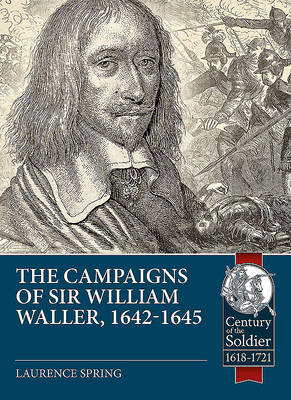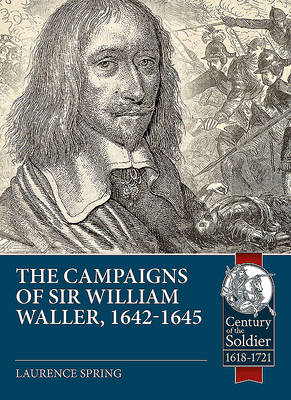
- Retrait gratuit dans votre magasin Club
- 7.000.000 titres dans notre catalogue
- Payer en toute sécurité
- Toujours un magasin près de chez vous
- Retrait gratuit dans votre magasin Club
- 7.000.0000 titres dans notre catalogue
- Payer en toute sécurité
- Toujours un magasin près de chez vous
Description
Nothing sums up the tragedy of the English Civil War more than the friendship between Sir William Waller and his opponent Sir Ralph Hopton as "this war without an enemy."However, Waller was also a general respected by both sides during the war, the Royalist Colonel Walter Slingsby described him as "the fox" and the "best shifter and chooser of ground when he was not master of the field." The Parliamentarian John Vicars in his England's Worthies published in 1647 refers to Waller as "one of the most impregnable offensive and defensive walls of the kingdom." His victories in 1642 and early 1643 earned him the nickname of "William the Conqueror," and due to his tactics of marching by night to surprise his enemy, the "Night Owl."It was Waller who also first mentioned the need for the formation of the New Model Army.
Using contemporary accounts to describe events, this book looks at Waller's campaigns from the siege of Portsmouth in June 1642 to April 1645 when his army was disbanded. It includeshis victories in the West in 1643, the raising of a new army in August 1643, the sieges of Basing House and Arundel Castle along with the defence of Farnham and the storming of Alton. Also included is Waller's many battles including Lansdown, Roundway Down, Cheriton, Cropredy Bridge, and the Second Battle of Newbury.
The book also covers the logistics of putting Waller's Army into the field, including clothing, arms, and taxation as well as the tension between Waller and the Earl of Essex.
Using contemporary accounts to describe events, this book looks at Waller's campaigns from the siege of Portsmouth in June 1642 to April 1645 when his army was disbanded. It includeshis victories in the West in 1643, the raising of a new army in August 1643, the sieges of Basing House and Arundel Castle along with the defence of Farnham and the storming of Alton. Also included is Waller's many battles including Lansdown, Roundway Down, Cheriton, Cropredy Bridge, and the Second Battle of Newbury.
The book also covers the logistics of putting Waller's Army into the field, including clothing, arms, and taxation as well as the tension between Waller and the Earl of Essex.
Spécifications
Parties prenantes
- Auteur(s) :
- Editeur:
Contenu
- Nombre de pages :
- 216
- Langue:
- Anglais
- Collection :
Caractéristiques
- EAN:
- 9781912866564
- Date de parution :
- 14-11-19
- Format:
- Livre broché
- Format numérique:
- Trade paperback (VS)
- Dimensions :
- 180 mm x 246 mm
- Poids :
- 498 g

Les avis
Nous publions uniquement les avis qui respectent les conditions requises. Consultez nos conditions pour les avis.






